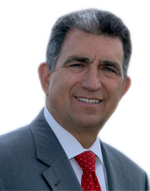Magnarelli Introduces Elder Abuse Bill
Establishes mandatory reporting of abuse in adult care facilities
Syracuse – New York State Assemblyman William B. Magnarelli (D-120th) announced today that important legislation (A370) to protect seniors has been introduced in the Assembly and has passed through the Health, Codes and Ways and Means committees. Authored by Magnarelli, the elder abuse legislation mandates reporting of alleged incidents of abuse, mistreatment or neglect of residents in adult care facilities.
“Elder abuse is appalling. We must do everything we can to stop neglect and violence against seniors,” Magnarelli said. “Our mothers, fathers and grandparents deserve every protection we can give them against predators and exploitation.”
Currently, the reporting of abuse, mistreatment or neglect of residents is required in nursing homes, but not other types of adult care facilities. Magnarelli’s legislation aims to standardize abuse reporting for all adult care facilities in New York State.
“Seniors who depend on care from providers for daily living should not be held to a different standard than those in nursing homes,” said Magnarelli. “Assisted living or partial assisted living facilities should be held to the same stringent reporting standards.”
According to the World Health Organization, elder abuse is “a single, or repeated act, or lack of appropriate action, occurring within any relationship where there is an expectation of trust which causes harm or distress to an older person.” In terms of adult care facilities, this trust is placed in the staff to provide the care required for each resident and not to exploit that trust.
The World Health Organization states that symptoms of elder abuse include:
- Delays between injuries or illness and seeking medical attention
- Implausible or vague explanations for injuries or ill-health, from either patient or caregiver
- Differing case histories from patient and caregiver
- Frequent visits to emergency departments because a chronic condition has worsened, despite a care plan and resources to deal with this in the home
- Functionally impaired older patients who arrive without their main caregiver
- Laboratory findings that are inconsistent with the history provided.
“When a loved one is experiencing abuse, mistreatment or neglect from a care provider the simple act of reporting it is what can save their life and restore integrity and safety,” said Magnarelli.
Magnarelli noted that the Assembly has also taken up a comprehensive package of bills to protect seniors against violence and fraud. Included are proposals to:
- Increase the penalty from a class A misdemeanor to a class E felony if more than one vulnerable elderly person is victimized by a scam artist (A.9813);
- Increase the penalty from a class A misdemeanor to second-degree assault – a class D violent felony – if a person 65 years or older is assaulted by someone more than 10 years younger, helping to curb predatory attacks by those who target seniors (A.9818);
- Add an experienced elder law attorney to the state’s Crime Victims Board, providing valuable perspective for cases involving older New Yorkers (A.6204); and
- Require the New York State Police to develop educational materials and procedures relating to elder abuse to help with their cases (A.9905).
In New York State, an estimated 30,000 seniors are victims of some kind of abuse or exploitation, a low estimate according to the National Center on Elder Abuse, which notes that only one in six elderly abuse cases are reported. Crimes can range from physical abuse – including sexual assault – to financial exploitation and emotional abuse.
